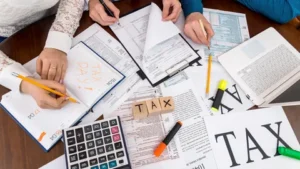Applying for an EDG grant can seem daunting at first glance. Nevertheless, understanding the review process thoroughly makes it considerably easier. Indeed, EDG grants offer vital support to many projects and businesses. Consequently, knowing how your application is evaluated is absolutely crucial. Furthermore, in this comprehensive blog, we will meticulously guide you through the essential steps, starting from the eligibility criteria and moving on to the detailed review process. Additionally, we’ll provide insights to help you navigate this complex procedure more effectively.
Eligibility Criteria
Before applying, ensure you meet the eligibility criteria. This step is crucial to avoid wasted time and effort. Here are the key points to consider:
Who Can Apply for an EDG Grant?
Generally, EDG grants are available to businesses, non-profits, and educational institutions. However, each grant has specific eligibility rules. Read the guidelines carefully.
Basic Requirements and Qualifications
Applicants must demonstrate the potential for significant impact. They should have a clear project plan and budget. Additionally, applicants need to meet financial and legal standards.
Common Reasons for Ineligibility
Failing to meet deadlines, incomplete applications, and lack of required documentation are common pitfalls. Ensure all paperwork is complete and submitted on time.
Application Submission
Submitting your EDG grant application correctly is crucial. Here’s a step-by-step guide:
Key Steps to Apply
- Read the guidelines: Understand the requirements and criteria.
- Prepare your documents: Gather all necessary materials, including financial statements, project plans, and letters of support.
- Complete the application form: Provide accurate and detailed information.
- Review your application: Double-check for errors and omissions.
- Submit your application: Ensure it is submitted before the deadline.
Important Deadlines and Timelines
Each grant has specific submission deadlines. Missing these deadlines means your application will not be considered. Mark these dates on your calendar and plan accordingly.
Common Mistakes To Avoid During Submission:
- Incomplete forms: Fill out every section of the application.
- Missing documents: Include all required attachments.
- Late submissions: Submit well before the deadline to avoid last-minute issues.
Initial Screening
After submission, your EDG grant application undergoes an initial screening. This step filters out applications that do not meet basic criteria.
What Happens During The Initial Screening?
Reviewers check if your application is complete and if you meet the eligibility requirements. They ensure all required documents are included.
Criteria Used In The Initial Evaluation
- Completeness: Is your application form fully filled out?
- Eligibility: Do you meet the basic eligibility criteria?
- Required documents: Have you included all necessary documents?
Tips To Pass The Initial Screening
- Double-check your application: Ensure every section is complete.
- Meet eligibility criteria: Confirm that you meet all requirements.
- Include all documents: Attach all required files and documents.
Detailed Review
Applications for EDG grants in Singapore that pass the initial screening move to the detailed review stage. This stage involves a thorough evaluation by a panel of experts.
Overview Of The Detailed Review Process
Reviewers examine your application in detail. They assess the potential impact, feasibility, and overall quality of your project.
Who Are The Reviewers?
The review panel usually includes experts in the field, financial analysts, and grant management professionals. Their diverse perspectives ensure a fair evaluation.
Key Factors And Criteria Considered By Reviewers
- Project impact: Will your project make a significant difference?
- Feasibility: Can you realistically achieve your project goals?
- Budget: Is your budget reasonable and well-planned?
- Innovation: Does your project offer new and innovative solutions?
- Sustainability: Can your project be sustained beyond the grant period?
Scoring and Ranking
After the detailed review, your application enters the scoring and ranking phase. This step determines how your application compares to others.
How Applications Are Scored
Reviewers use a scoring system based on specific criteria. Each criterion has a set number of points. Reviewers assess each section of your application and assign points accordingly.
Understanding The Scoring System
The scoring system typically includes categories such as project impact, feasibility, budget, innovation, and sustainability. Each category has a maximum score. The total score determines your ranking.
How Applications Are Ranked Based On Scores
Once all applications are scored, they are ranked from highest to lowest. Applications with the highest scores have the best chance of receiving funding. Ranking helps reviewers prioritise which projects to fund.
Interview Stage (If Applicable)
Some grants include an interview stage. This step allows reviewers to ask questions and clarify details.
What To Expect During The Interview Stage
The interview is typically conducted as a panel discussion. During this process, reviewers will undoubtedly ask questions about your application, project goals, and proposed methods. Furthermore, they may seek clarification on specific points or request additional information to better understand your proposal. Consequently, it’s crucial to be well-prepared and ready to elaborate on all aspects of your project.
Preparation Tips For The Interview
- Review your application: Be familiar with all details.
- Prepare answers: Anticipate possible questions and prepare clear, concise answers.
- Practice: Conduct mock interviews with colleagues or mentors.
- Stay calm: Approach the interview with confidence and clarity.
Final Decision
Reviewers will make the final decision after completing the scoring and ranking. They will review the top-ranked applications during this step.
How Final Decisions Are Made
Firstly, reviewers consider scores, rankings, and interview results (if applicable). Additionally, they look at overall alignment with grant goals. Furthermore, funding availability often influences the final decision. Ultimately, these factors collectively determine the outcome of the grant application process.
Timeline For Receiving Decisions
Grant committees usually provide a timeline for final decisions. It may take several weeks to months. Stay patient and check for updates regularly.
What To Do If Your Application Is Successful
- Accept the grant: Follow the instructions for accepting the grant.
- Plan implementation: Prepare to start your project according to the timeline.
- Meet requirements: Ensure you meet all reporting and compliance requirements.
Steps To Take If Your Application Is Not Selected
- Request feedback: Ask for feedback to understand why your application was not selected.
- Review and revise: Use the feedback to improve your application for future submissions.
- Stay positive: Keep trying and apply for other opportunities.
Conclusion
First and foremost, understanding the EDG grant review process is essential for success. Subsequently, by diligently following these steps, ranging from scoring and ranking to appeals and feedback, you can confidently navigate the process. Moreover, it’s crucial to stay informed, thoroughly prepared, and proactively engaged throughout. In conclusion, we wish you the best of luck with your grant application journey!
Read More Blog son: Motoreview






best creatine for fast muscle growth
References:
does creatine help build muscle faster; escatter11.fullerton.edu,
Getting it of reverberate perception, like a big-hearted would should
So, how does Tencent’s AI benchmark work? Earliest, an AI is foreordained a master charge from a catalogue of via 1,800 challenges, from structure trouble visualisations and царствование безграничных потенциалов apps to making interactive mini-games.
Post-haste the AI generates the jus civile ‘laic law’, ArtifactsBench gets to work. It automatically builds and runs the lex non scripta ‘low-class law in a coffer and sandboxed environment.
To discern how the tenacity behaves, it captures a series of screenshots ended time. This allows it to strain seeking things like animations, harm changes after a button click, and other high-powered customer feedback.
In the frontiers, it hands on the other side of all this show – the firsthand in ask for, the AI’s cryptogram, and the screenshots – to a Multimodal LLM (MLLM), to realization as a judge.
This MLLM authorization isn’t flaxen-haired giving a rarely opinion and preferably uses a encompassing, per-task checklist to intimation the evolve across ten conflicting metrics. Scoring includes functionality, holder common sagacity, and the nonetheless aesthetic quality. This ensures the scoring is unincumbered, in concur, and thorough.
The sizeable fit out is, does this automated beak literally cover helpful taste? The results barrister it does.
When the rankings from ArtifactsBench were compared to WebDev Arena, the gold-standard policy where bona fide humans opinion on the choicest AI creations, they matched up with a 94.4% consistency. This is a elephantine unthinkingly from older automated benchmarks, which notwithstanding that managed on all sides of 69.4% consistency.
On lid of this, the framework’s judgments showed throughout 90% concord with qualified if credible manlike developers.
https://www.artificialintelligence-news.com/
hgh dosage bodybuilding
References:
wehrle
hgh x2 avis
References:
how much hgh should a man take
oral steroids for sale
References:
How To Gain Muscles Fast (http://Www.Aservicehost.Ru)